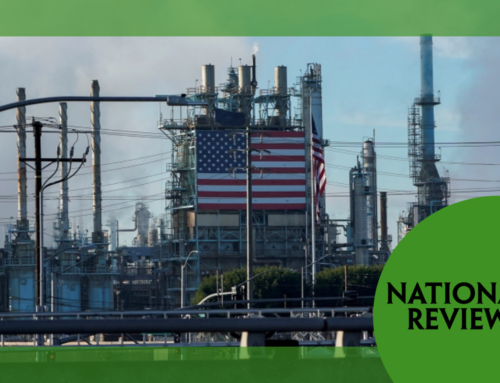By Renée Jean
Source: WillistonHerald
Meridian Energy Group has said its Davis Refinery in North Dakota will be the greenest refinery in the nation, and perhaps the world.
In keeping with this ambition, the company has recently announced that it has adopted an Environmental and Social Management Plan, in keeping with Equator Principles.
Equator Principles is a risk management framework adopted by 101 financial institutions across 38 countries. The principles include climate risk assessment, labor standards, human rights for indigenous peoples, and certain other common environmental and social standards.
Meridian Davis CEO and Chairman William Prentice said the new concepts guiding Equator Principles helped make it easier for Meridian Energy to communicate with investors about its green field refinery projects in the Williston Basin, the Permian, and, potentially, Oklahoma as well.
“It used to be if you got your permits, the assumption was you had done your job,” Prentice said. “The financial institutions didn’t need to look at it beyond that.”
However, in today’s climate, environmentalists are increasingly targeting investors of energy projects, urging them to be more discriminatory about what they finance, and to refuse funding for projects involving fossil fuels.
Equator Principles emerged as a kind of answer to the changing political landscape, to help create modernized standards for investors to go by.
“As we are now getting started on the full project financing for the Davis Refinery, it became obvious there is a totally new, let’s call it lexicon out there on how institutional investors think about energy,” Prentice said. “So we took everything we’ve been doing the last seven years and put it into these new terms.”
Putting everything in terms of Equator Principles not only meshed well with Merdian’s goals for its new refineries, but it also made it easier to articulate to investors what Meridian Davis is doing.
“As a result of this, we are now able to go ahead on some additional work on the project financing for the Davis Refinery and that’s important,” he said. “It’s kind of the final piece of paper with proceeding in our project financing for the Davis Refinery.”
While man environmental groups have argued that fossil fuels have no place in future energy policy, Prentice does not believe that’s realistic or sustainable. The demand curves for energy are too great for renewables to completely supply what will be required in the future. The footprint for solar and wind projects to supply that kind of demand would also be enormous, and would pose environmental costs of their own.
“There’s a middle ground,” Prentice said. “We just have to do it a lot cleaner, and companies like Meridian are able to demonstrate how.”
Those fueling up with products from the Davis Refinery will be ultimately be using a product that required 90 percent fewer emissions to produce and that has 60 percent less carbon invested in each gallon of gasoline or diesel, Prentice said.
“If the entire industry were to clean up its act to the same degree, you’d see thousands of carbon emissions taken out of the atmosphere, and lots and lots of pollutants as well, so that is a start,” he added.
Even if fossil fuels disappear altogether, Prentice said there will still be a necessary transitionary period.
“Even if you were to just put the brakes on fossil fuel right now, how is everyone going to get to work the next morning?” Prentice asked. “Even if you believe fossil fuels will disappear in the next 50 to 100 years, how will you get to work over the next 10 to 20 years? If renewables take over, fine, but you have to have a soft landing, even if fossil fuels are going to disappear.”
Davis Refinery has been opposed by several environmental groups, who have said they object to its proximity to Theodore Roosevelt National Park. The groups have filed lawsuits seeking to stop its construction. Arguments have been heard, but the cases are still awaiting a decision by the North Dakota Supreme Court.
Prentice said the company expects to continue field work this summer for Daviss Refinery, to prepare for construction and installation the following summer.
“We have quite a bit of design work left to do,” he said. Vendor relationships have been established for all the modules that will go out there. This is going to get built, and we are getting closer every day.”
Davis refinery will ultimately help create more refinery capacity for light sweet crude. It can also be a building block in the value chain as the state seeks to develop a petrochemicals industry.
“You look at oil production the U.S., most is in the lighter crude oils from (hydraulic) fracturing,” he said. “There is only so much that the existing refinery plant equipment in the U.S. can handle, so there is a lot of room for new capacity that can make use of the lighter crude oil. A lot of the refineries out there aren’t getting any younger, either, and some of them are just one bad day away from not being around any more.”







Leave A Comment